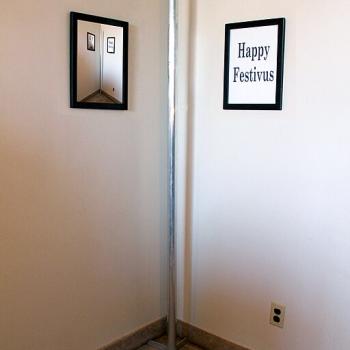Melanie Kirkpatrick’s disturbing yet riveting Escape from North Korea: The Untold Story of Asia’s Underground Railroad tells a story the desperate souls who try to flee totalitarian North Korea, and the few who make it. Those who succeed often receive aid from Christians, both Asians and westerners, who are courageous laborers in what Kirkpatrick describes as a new underground railroad.
It is difficult for outsiders to comprehend just how abominable North Korea is, with its abysmal living conditions and absolute lack of freedom, especially religious liberty. Hundreds of thousands of people languish today in North Korea’s prison camps, people sent there for the mere suspicion of disloyalty to the regime, or for political sins committed by relatives. North Korea is the world’s worst persecutor of Christians. People there face torture, jail, and possibly execution for the simplest offenses, such as owning a Bible.
North Korea actually has a rich religious history, including a history of Christian devotion. The capital, Pyongyang, was the scene of a remarkable evangelical revival in 1907, and the city became known as the “Jerusalem of the East.” But following the Korean War, the Communists and Kim Il-Sung targeted Christians and other religious groups as counter-revolutionaries, and entirely snuffed out organized religion by 1960. Since then, the regime has permitted the public operation of a few churches, but only under strict state control. 
The North Koreans have so effectively eliminated Christianity that most escapees have virtually no knowledge of the religion. Until they escape, that is. But small, quiet networks of Christians — some formally associated with the underground railroad, some not — wait for the refugees on the other side of the Chinese border. (China is shamefully complicit in forcibly returning many North Korean runaways to their certain doom.)
Kirkpatrick tells the story of one abandoned, starving boy named Joseph who scrambled across the Tumen River into China in February 2005, risking the chance that he would be captured or shot on sight. (Virtually all escapees go north into China — crossing the demilitarized zone into South Korea is effectively impossible.) In the Chinese village across the river, he found no one to help him until he knocked on the door of a Christian, who fed him and told him to go to the nearest town. There an old woman advised him to find a church, because Christians helped escapees. “What’s a church?” Joseph asked. “Look for a building with a cross on it,” she told him.
He did find a church, connecting with a network of Chinese Christians that eventually helped him find refuge at the American consulate in Shenyang and, miraculously, political asylum in the United States. “The first survival tip a North Korean learns when he reaches China,” Kirkpatrick writes, is to “find a Christian.”
Untold numbers of North Koreans have converted to Christianity following their escape, and some brave ones have even returned to North Korea, at extraordinary personal risk, to serve as witnesses to their countrymen.
Evangelicals often appropriately decry Christian complacency in the face of enormous global challenges, from human trafficking to world evangelization. But in examples such as Kirkpatrick’s underground railroad, with its believers serving the destitute people escaping North Korea, one also sees hopeful signs of Christians pursuing righteousness in the face of grave danger and unimaginable oppression.
For more: Marvin Olasky of WORLD Magazine interviewed Melanie Kirkpatrick here in 2012.
@ThomasSKidd on Twitter












